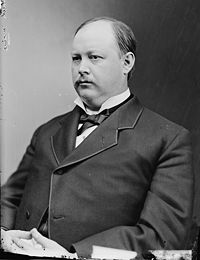Best of the Blogs: Aftermath of the Supreme Court’s Ruling on the Affordable Care Act
 The Supreme Court’s decision upholding the constitutionality of the Affordable Care Act has generated a great deal of “instant analysis” on the web. This post will survey some of the noteworthy commentary.
The Supreme Court’s decision upholding the constitutionality of the Affordable Care Act has generated a great deal of “instant analysis” on the web. This post will survey some of the noteworthy commentary.
I have not read anything that has caused me to re-evaluate my initial reaction to the decision. I thought that neither Justice Robert’s Commerce Clause analysis nor his Taxing Power analysis was particularly compelling, yet I was struck by the manner in which the Chief Justice managed to construct a 5-4 majority that paralleled Marbury v. Madison insofar as the ruling chastized a sitting President with its rhetoric while simultaneously handing the President a major policy victory. Upon further reflection, I still believe that future Supreme Court justices will find it quite easy to evade the boundaries that the language of the NFIB v. Sebelius decision purports to place on federal government power. All it will take is a change in one vote for a future Court to designate the opinion’s Commerce Clause analysis as “dicta,” or else to find the requisite level of coercion lacking the next time that Congress’ deploys its Spending Power in a similar fashion. While the rhetoric of the opinion promises doctrinal limits on federal power, the actual holdings of the decision fail to deliver on that promise.
John Yoo has come to the same conclusion. In an op ed piece in the Wall Street Journal he considers the spin that some political conservatives have placed on the Court’s ruling — that it was a victory for the advocates of limited governent — and finds these assertions to be no more than a “hollow hope.” He rejects the comparison to Marbury v. Madison, and instead compares the opinion of Justice Roberts to the “switch in time” that led the Supreme Court to uphold New Deal Era legislation during the Franklin Roosevelt Administration. By frustrating the Supreme Court’s best chance since the 1930s to reverse what Yoo views as an anti-originalist acceptance of broad legislative power, Justice Roberts has let Professor Yoo down.

